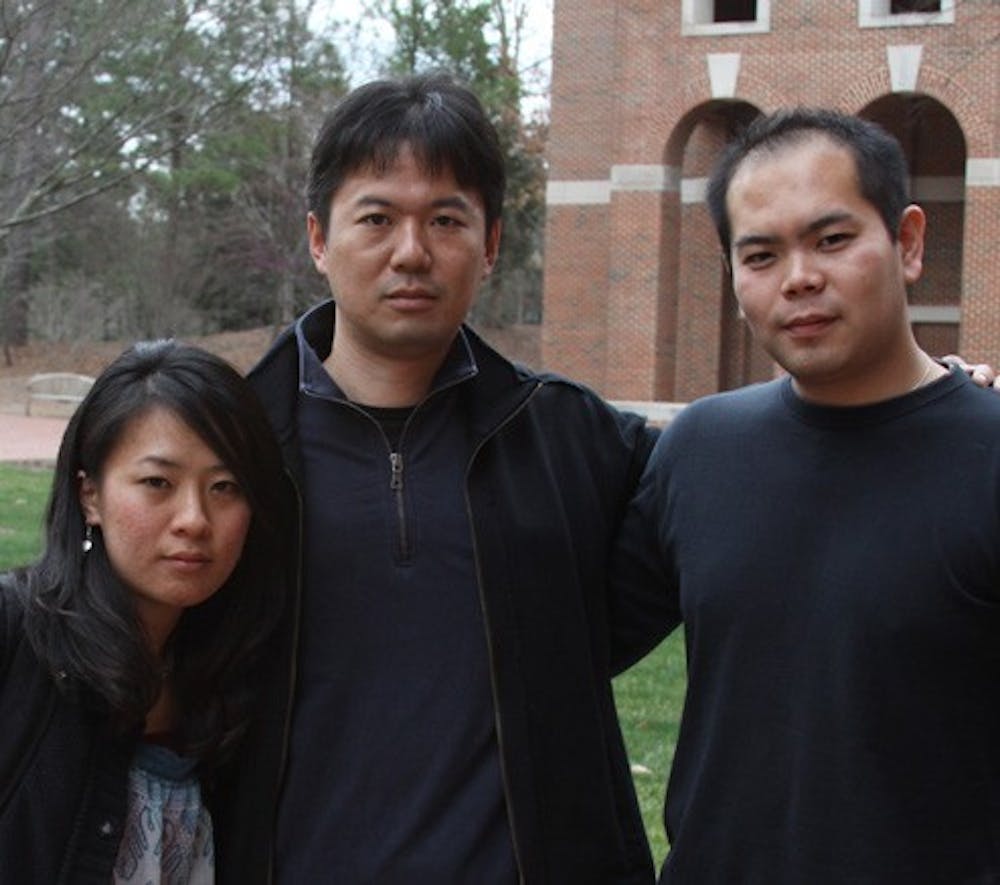Takeuchi and Kubo said the most widespread problem is this lack of food and water, but the nuclear threat has also been at the forefront of their minds.
“I have a friend who lives in a nuclear emergency area,” Takeuchi said. “They cannot open the windows or go outside and they must cover up. They cannot get food and water.”
Kubo added that despite frequent blackouts and limited food and water, his wife is most concerned about radiation.
To combat the helplessness they feel a continent apart, Japanese business students from the University are joining with those in Duke’s Fuqua School of Business to raise money in an event next week to help the Japanese.
The Carolina Otaku Uprising club will be in the Pit this week folding two paper cranes for each dollar donated — one as a gift for the donor, and one for the club. Its goal is to raise $1,000, or 1,000 paper cranes.
“The paper crane has become a symbol of peace around the world, and we want to hit our target of 1,000 to help spread this message of peace and hope to the people of Japan,” said Cameron Blashka, president of the club.
The club will donate the proceeds to the American Red Cross’ fund for Japanese relief.
Japan Club will be participating in fundraising this week, as well. The club will be taking donations in the Pit on Thursday and Friday. Students who donate at least $3 will receive a complementary wrist band.
Kana Kuroda, vice president of the Japan Club, said her extended family in Japan is safe — but there is much to be done.
“I’m sure everybody knows about this crisis, but we really want to raise awareness and tell everyone just how terrible this is,” she said.
“There’s been some controversy about people who don’t like Japan saying this is payback for Pearl Harbor or something,” she said. “That makes me so mad. I just hope no Carolina students are that way.”
Japan Club’s funds will go directly to the Japanese Red Cross.
To get the day's news and headlines in your inbox each morning, sign up for our email newsletters.
As it did in the wake of the Haiti earthquake, the Campus Y will participate in fundraising and likely try to unify campus efforts. But Alex Loizias, co-chairwoman of the extended disaster relief committee, has specific instructions.
“We’re recommending that people hold off on making any significant donations to U.S.-based aid organizations,” she said. “Japan hasn’t asked for or accepted significant international aid yet despite hundreds of offers.
“If people want to make monetary donations, we recommend making them to nonprofits already working and based in Japan, such as the Japanese Red Cross.”
Loizias added that it would be wise to hold off on any clothing and food drives as well, explaining that the response needed for Japan is of a different scale than the response that was needed for Haiti.
“Even considering the magnitude and extensive damage done, Japan is managing their disaster relief efforts incredibly well,” she said.
Contact the University Editor at university@dailytarheel.com.



